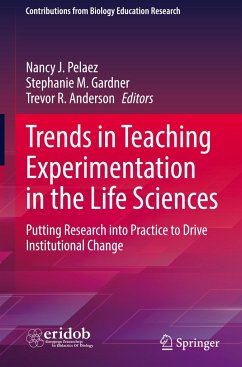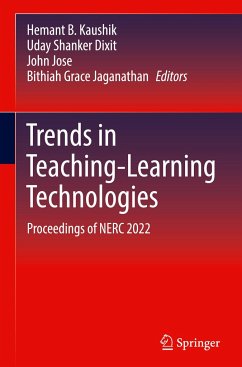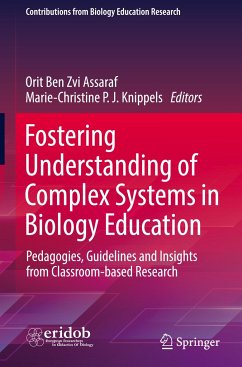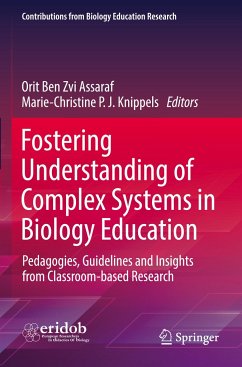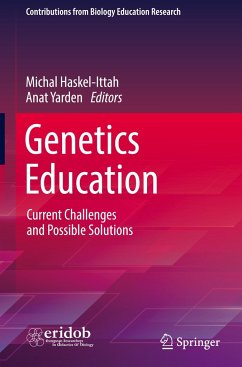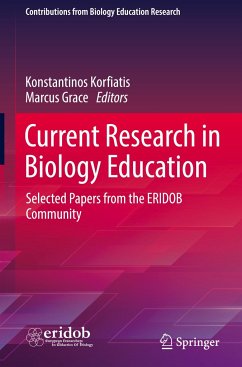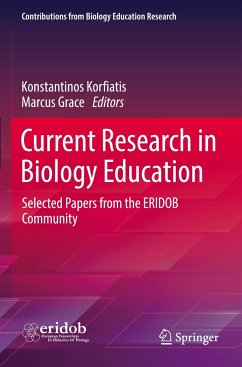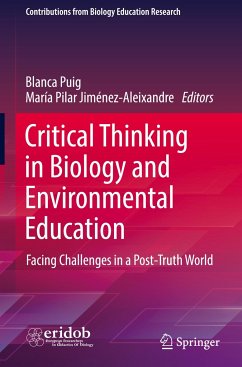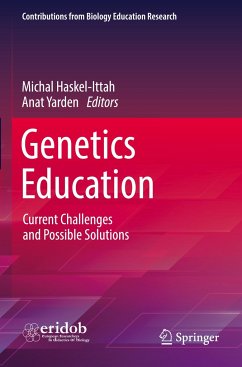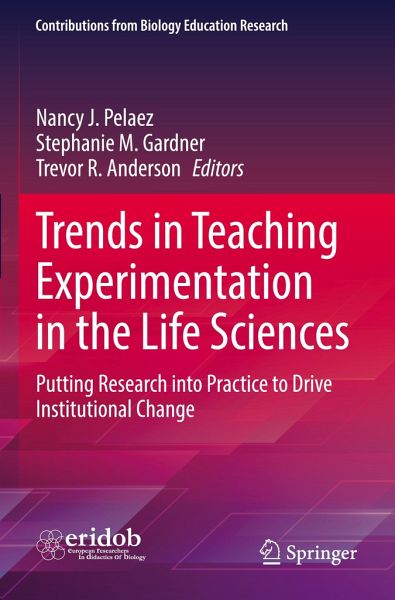
Trends in Teaching Experimentation in the Life Sciences
Putting Research into Practice to Drive Institutional Change
Herausgegeben: Pelaez, Nancy J.; Gardner, Stephanie M.; Anderson, Trevor R.
Versandkostenfrei!
Versandfertig in 6-10 Tagen
98,99 €
inkl. MwSt.

PAYBACK Punkte
49 °P sammeln!
This book is a guide for educators on how to develop and evaluate evidence-based strategies for teaching biological experimentation to thereby improve existing and develop new curricula. It unveils the flawed assumptions made at the classroom, department, and institutional level about what students are learning and what help they might need to develop competence in biological experimentation.Specific case studies illustrate a comprehensive list of key scientific competencies that unpack what it means to be a competent experimental life scientist. It includes explicit evidence-based guidelines ...
This book is a guide for educators on how to develop and evaluate evidence-based strategies for teaching biological experimentation to thereby improve existing and develop new curricula. It unveils the flawed assumptions made at the classroom, department, and institutional level about what students are learning and what help they might need to develop competence in biological experimentation.
Specific case studies illustrate a comprehensive list of key scientific competencies that unpack what it means to be a competent experimental life scientist. It includes explicit evidence-based guidelines for educators regarding the teaching, learning, and assessment of biological research competencies. The book also provides practical teacher guides and exemplars of assignments and assessments. It contains a complete analysis of the variety of tools developed thus far to assess learning in this domain.
This book contributes to the growth of public understanding of biological issuesincluding scientific literacy and the crucial importance of evidence-based decision-making around public policy. It will be beneficial to life science instructors, biology education researchers and science administrators who aim to improve teaching in life science departments.
Chapters 6, 12, 14 and 22 are available open access under a Creative Commons Attribution 4.0 International License via link.springer.com.
Specific case studies illustrate a comprehensive list of key scientific competencies that unpack what it means to be a competent experimental life scientist. It includes explicit evidence-based guidelines for educators regarding the teaching, learning, and assessment of biological research competencies. The book also provides practical teacher guides and exemplars of assignments and assessments. It contains a complete analysis of the variety of tools developed thus far to assess learning in this domain.
This book contributes to the growth of public understanding of biological issuesincluding scientific literacy and the crucial importance of evidence-based decision-making around public policy. It will be beneficial to life science instructors, biology education researchers and science administrators who aim to improve teaching in life science departments.
Chapters 6, 12, 14 and 22 are available open access under a Creative Commons Attribution 4.0 International License via link.springer.com.





